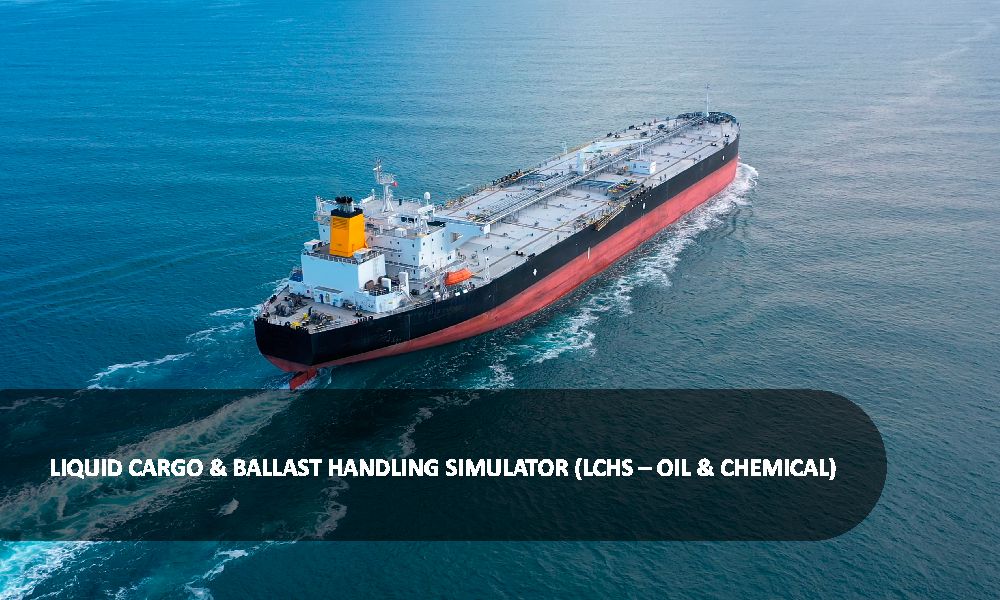
Aims:
The Liquid Cargo & Ballast Handling Simulator (LCHS – Oil & Chemical) course is designed to provide participants with comprehensive theoretical knowledge and practical skills required for the safe, efficient, and pollution-free handling of liquid cargoes—specifically oil and chemical cargoes—using advanced simulation techniques.
This course is developed in accordance with IMO Model Course 1.37 IMO Model Course 2.06 and is structured to meet internationally accepted standards for maritime industry. It incorporates key principles from relevant IMO guidelines and aligns with industry expectations, including SIRE 2.0 Part 1 – Section 3.3.3.
Objectives:
- Understand the properties and hazards of oil and chemical cargoes, including reactivity, toxicity, and flammability.
- Operate cargo handling systems and instrumentation, including pumps, valves, stripping systems, heating coils, inert gas systems, vapor return systems, and control panels.
- Perform safe and efficient cargo operations, including pre-loading, loading, topping off, discharging, line flushing, and tank stripping.
- Apply industry-standard checklists and operational plans, ensuring time management and procedural accuracy.
- Demonstrate compliance with safety, environmental, and pollution prevention regulations, including MARPOL and ISGOTT guidelines.
- Manage onboard emergencies, such as cargo spills, equipment failures, vapor leaks, and fire scenarios, using simulator-based drills.
- Calculate cargo quantities, ullage, trim, stability, draft, and hull stress to ensure safe carriage and structural integrity.
- Gain practical experience in identifying and resolving operational challenges encountered during cargo and ballast operations.
- Integrate behavioral competency assessment and bridge teamwork principles, as emphasized in SIRE 2.0, to enhance onboard performance and safety culture.
- Understand the SIRE 2.0 framework and its direct application to cargo and ballast handling, inspection readiness, and continual improvement onboard tankers.
- Teacher: AIMS MARITIME

